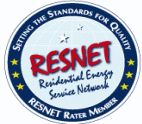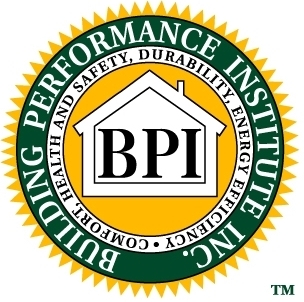 Earlier this week, RESNET sent an email out informing everyone about a new code of ethics they implemented on October 8th. Besides the obvious oopsie at the bottom, I didn’t really think twice about it and I figured a simple & quick article like the one I did on the NARI Code of Ethics, would cover it. Well as I sat down to right the article, I remembered that I had not posted one for BPI either, so why not kill two birds with one stone? And that folks is when life got interesting…
Earlier this week, RESNET sent an email out informing everyone about a new code of ethics they implemented on October 8th. Besides the obvious oopsie at the bottom, I didn’t really think twice about it and I figured a simple & quick article like the one I did on the NARI Code of Ethics, would cover it. Well as I sat down to right the article, I remembered that I had not posted one for BPI either, so why not kill two birds with one stone? And that folks is when life got interesting…
BPI:
 Talk about easy – BPI does not have one unless you are a trainer or exam proctor. In all honesty, I cannot really say that is a bad thing, as I firmly believe Tom Clancy nailed it in one – if you have to write down your ethics, the battle is already lost.
Talk about easy – BPI does not have one unless you are a trainer or exam proctor. In all honesty, I cannot really say that is a bad thing, as I firmly believe Tom Clancy nailed it in one – if you have to write down your ethics, the battle is already lost.
RESNET:
RESNET’s was and still is based on 3 Principles that are quoted below. The only modification I have made to those principles is changing “Raters/Home Energy Survey Professionals/Providers” to “RSP’s” for readability purposes. (Yes folk’s Principle 3 – Point 3 & 4 say the same thing – Oops)
Principle 1: Professional Conduct
- RSP’s shall commit to objectivity and neutrality in conducting a rating/home energy survey and in making any recommendations.
- RSP’s shall not engage in any conduct that is detrimental to the reputation or the best interests of RESNET, the profession or service.
- RSP’s shall not disclose information concerning the rating or home energy survey for a specific home to parties other than the client or the client’s agent without the written permission of the client or the client’s agent except to report to the Rating or Home Energy Survey Provider for the purposes of registration, certification or quality assurance.
Principle 2: Representations of Services and Fees
- RSP’s shall make no representations regarding their services or qualifications that are false or misleading in any material respect.
- RSP’s shall fully disclose all applicable charges, as well as the general scope and deliverables of services, prior to conducting a home energy rating, home energy survey or providing other services.
Principle 3: Conflicts of Interest
- RSP’s shall not accept compensation, financial or otherwise, from more than one interested party for the same service without the consent of all interested parties.
- RSP’s shall inform their clients that they have the right to obtain competitive bids for any work recommended by the rating/home energy survey they provide.
- RSP’s shall not allow an interest in any business to affect the results of the rating/home energy survey.
How about the new “RESNET Qualified Contractors”:
A what??? Yes, I sense another article coming out about this, but in short, RESNET is encouraging “Raters” to get contractors to join RESNET & sell each other’s services to homeowners in a “team” approach. Well the contractors are off the hook ethics wise, but there is a Consumer Complaint Resolution Process for failure to perform the work properly.
What has changed:
As I was mulling over this & answering a few of my own questions, I was wondering if their oopsie was because something had been removed. Well it appears quite a lot has been removed as based off this archived copy of RESNET Code of Ethics. The first thing I noticed was how much longer it was & that the entire section disappeared on ethics complaints & procedures. Also missing;
- Principle 1:
- RSP’s shall remain in good standing… in accordance with the Mortgage Industry National Home Energy Rating Standards. (MI)
- RSP’s shall comply with the technical standards & procedural requirements of MI
- RSP’s shall commit to participate in the Quality Assurance Program as required by RESNET
- RSP’s shall refrain from speaking of other RSP’s that might diminish the profession or service in the eye’s of others (Yeah nothing like an “ethical code of silence”)
- RSP’s shall commit to ongoing professional development
- Principle 3:
- The financial disclosure form has been removed that was required by MI.
- No double listing on the results…
Except for the “ethical code of silence”, all of the above still applies and is covered in other area’s like the actual work standards that apply to Energy Ratings.
But wait, there’s more:
As I was typing this up, I came across a standard for Energy Auditors which also includes the items removed from theCode of Ethics. Hmmm, I am begining to wonder if they didn’t clean up the ethics portion, to allow for the auditor portion to be added in. In case youwould like to read up on this, here is the press release which hasn’t even hit my inbox yet, or it appears Twitter. I will delve into this new standard a little later along with the 3 new classes of raters…

Sean,
I don’t see the ‘don’t speak ill of’ section as a professional code of silence. I do see it as, ‘don’t run your competitor down’ or ‘don’t talk about the problems in our industry, without including the positives’.
While it is slightly short, I do not believe it will muzzle a good rater.
Example: Rater A does a Rating on a House for an EIM. One year later the HO sells, and another year later the new HO pulls out the bills and sees the estimated ‘average family’ useage predicted by the reports are 5% under what he actually used. So he gets Rater B and runs the numbers and they show him using a little more than the actual.
What does the 2nd rater say? OK! Both raters used REM? OK! Rater B, used one of the recently approved software packages, so a different software product was involved. What does the 2nd rater say?
I see it as presenting your company and services in a positive manner, and not saying much of anything about other raters. When you find a customer that is upset with a rater, how do you handle the situation? Do you leave it alone, refer to the complaint resolution mechanism without much comment, or run the other rater down.
If the political campaigns were run this way, it would be nice.
John
I
John, I guess my comment was to short – first, I fully agree with the points you make & for those that play that game, generally loose. My point is what happens when you, I or anyone else speaks up about an issue with the program, or something shady – according to the old ethics code, we could be booted for it.
Yes, I have seen these line’s in others codes & they are generally just used as a muzzling technique, or people fall back on that & say – oh there’s nothing I can do. Do I feel that is an issue with RESNET – no, but I for one am glad to see that line go.
Sean,
I don’t see the ‘don’t speak ill of’ section as a professional code of silence. I do see it as, ‘don’t run your competitor down’ or ‘don’t talk about the problems in our industry, without including the positives’.
While it is slightly short, I do not believe it will muzzle a good rater.
Example: Rater A does a Rating on a House for an EIM. One year later the HO sells, and another year later the new HO pulls out the bills and sees the estimated ‘average family’ useage predicted by the reports are 5% under what he actually used. So he gets Rater B and runs the numbers and they show him using a little more than the actual.
What does the 2nd rater say? OK! Both raters used REM? OK! Rater B, used one of the recently approved software packages, so a different software product was involved. What does the 2nd rater say?
I see it as presenting your company and services in a positive manner, and not saying much of anything about other raters. When you find a customer that is upset with a rater, how do you handle the situation? Do you leave it alone, refer to the complaint resolution mechanism without much comment, or run the other rater down.
If the political campaigns were run this way, it would be nice.
John
I
John, I guess my comment was to short – first, I fully agree with the points you make & for those that play that game, generally loose. My point is what happens when you, I or anyone else speaks up about an issue with the program, or something shady – according to the old ethics code, we could be booted for it.
Yes, I have seen these line’s in others codes & they are generally just used as a muzzling technique, or people fall back on that & say – oh there’s nothing I can do. Do I feel that is an issue with RESNET – no, but I for one am glad to see that line go.